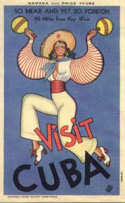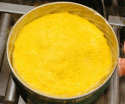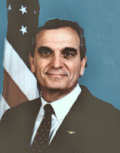 Today is Friday, and we have shrimp on the menu.
Today is Friday, and we have shrimp on the menu.
Last Monday Pacific Shrimp Company pleaded guilty to various charges arising from its exports of shrimp to Mexico. The company pleaded guilty to two counts of falsifying a government document, which is a violation of 18 U.S.C. § 1001(a)(3). In order to obtain NAFTA’s tariff-free treatment from Mexico, the company falsely certified that the shrimp originated from the United States even though it had been purchased from India and was being re-exported to Mexico. Specifically, the company admitted that it falsified the Department of Commerce’s NAFTA Certificate of Origin. (In addition to the Certificate of Origin, the company also admitted that it falsified health and inspection certificates related to the exports.)
What is significant here for exporters is that even though Mexico was injured by the exporter’s actions, the exporter was still prosecuted in the United States. Further, the U.S. prosecution would not curtail any remedies that Mexico might have against the exporter for violation of Mexican law.
Pacific Shrimp also pleaded guilty to two counts of unlawful exports of wildlife in violation of 16 U.S.C. § 3372(a)(2)(A), which prohibits exports of fish, shellfish or wildlife in violation of any state or foreign law. Presumably this statute was violated because the export of the shrimp to Mexico with a false certificate of origin violated Mexican law.
The Company, as part of a plea deal, agreed to a fine of $120,000 and five years probation.

 Posted by
Posted by  Category:
Category: 

 On Tuesday Congress finally passed the
On Tuesday Congress finally passed the  In its relentless quest to keep America safe from terrorism, OFAC
In its relentless quest to keep America safe from terrorism, OFAC  A license is required from the Nuclear Regulatory Commission to export certain nuclear materials. Those license applications are typically printed in the Federal Register for comment. After 9/11 the NRC deleted certain information from the Federal Register Notice, including the precise quantity to be exported, such as it did in
A license is required from the Nuclear Regulatory Commission to export certain nuclear materials. Those license applications are typically printed in the Federal Register for comment. After 9/11 the NRC deleted certain information from the Federal Register Notice, including the precise quantity to be exported, such as it did in  In response to industry complaints about increased processing times for license applications at DDTC, Robert Maggi, the Managing Director of DDTC,
In response to industry complaints about increased processing times for license applications at DDTC, Robert Maggi, the Managing Director of DDTC, 

